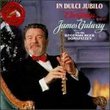| All Artists: Stephen Roberts, Igor Stravinsky, James O'Donnell, Westminster Cathedral Choir, City of London Sinfonia, Iain Simcock, John Mark Ainsley, Simon Davies, Nicholas Keay Title: Stravinsky:Symphony of Psalms/Mass/Canticum Sacrum Members Wishing: 2 Total Copies: 0 Label: Hyperion UK Release Date: 11/17/1993 Album Type: Import Genre: Classical Styles: Opera & Classical Vocal, Historical Periods, Modern, 20th, & 21st Century, Symphonies Number of Discs: 1 SwapaCD Credits: 1 UPC: 034571164373 |
Search - Stephen Roberts, Igor Stravinsky, James O'Donnell :: Stravinsky:Symphony of Psalms/Mass/Canticum Sacrum
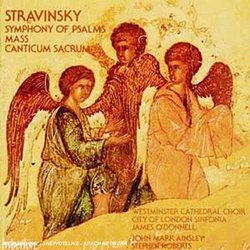 | Stephen Roberts, Igor Stravinsky, James O'Donnell Stravinsky:Symphony of Psalms/Mass/Canticum Sacrum Genre: Classical
Here's a Symphony of Psalms that successfully captures the spirit and letter of the work--reverence, jubilation, and celebration, as well as specifics of orchestral color and texture. Boys' voices--supposedly Stravinsky's ... more » |
Larger Image |
CD DetailsSynopsis
Amazon.com Here's a Symphony of Psalms that successfully captures the spirit and letter of the work--reverence, jubilation, and celebration, as well as specifics of orchestral color and texture. Boys' voices--supposedly Stravinsky's original choice--contribute their share to the bright choral timbre, an effect that works very well. We also get first-rate performances of the Mass and the rarely recorded Canticum sacrum. --David Vernier Similarly Requested CDs
|
CD ReviewsMiraculously Well-Prepared Choir Karl Henning | Boston, MA | 04/21/2003 (5 out of 5 stars) "I agree with Mark Swinton here, that both the choir and the orchestra are brilliant in the Symphony of Psalms. I prefer this recording to the recent-ish Boulez recording, partly because the choir maintains MUSICALITY (sorry for the all-caps there, but there are a couple of near-shrieks in the Boulez which still haunt me) through the whole piece, partly because the wonderfully-voiced chords sound so terrific. This is one of those pieces which, in order to bring forth true excellence in performance, requires a conductor who understands both choir and orchestra; and this is where O'Donnell outpaces Boulez.The closest thing I have to a quarrel with the chorus is, the tenors are a little hesitant when they come in with "Ne sileas" (which is a shade ironic, since the text means, "Be not silent" ....) But that is a small moment; overall, the choir are fantastic.One should mention in passing that the treble parts are sung by boys, which accords with the composer's wishes. The score bears the legend: "The choir should contain children's voices, which may be replaced by female voices (soprano and alto) if a children's choir is not available."(Which makes me wonder if, when Koussevitsky premiered the piece in Boston, he made use of a boys' choir ... certainly the Archdiocese of Boston has an excellent choir school.)Like Boulez, O'Donnell does not take the coda to the last movement as slowly as Stravinsky's revision demands ... but O'Donnell makes less of a rush of it than does Boulez. (But then, of course, since Stravinsky's own recording of the Symphony of Psalms disregards his own revised tempo marking there, the composer himself set a doubtful precedent.)Excellent notes by Ivan Moody (himself a fine composer) explore the complex interrelation of Stravinsky's return to the Russian Orthodox faith, his composerly predilection for setting the Latin language, and the decision to set the Catholic Mass (since he wanted to write a liturgical piece, accompanied by instruments).This is a wonderful performance of the Mass, which (for all its very different sound world) is actually on about the same temporal scale as the Palestrina Miss Papae Marcelli. The accompaniment (an ingenious double quintet, of double reeds and cylindrical-bored brass -- no smooth clarinets, nor any sweet-toned horns) is masterfully written, and pure Stravinsky ... there are moments which recall the Symphonies of Wind Instruments (which, considering that the closing chorale of the Symphonies was written in honor of Debussy on that composer's death, has something of a solemn, quasi-religious character).Where the Symphony of Psalms is clearly a concert work, and the Mass is designed for liturgical use (i.e., as music to accompany an actual celebration of the Mass -- designed for this, though such use of the piece has been exceedingly rare) ... the wonderful Canticum Sacrum is somewhere in between. It is impractically monumental for ordinary church use, yet its ingeniously assembled text is more of a sermon than it is a concert statement. The Canticum has striking points of contact with Stravinsky's ballet, Agon -- as we should perhaps expect, from the circumstance of Stravinsky's writing the ballet in the period from December 1953 to April 1957 (the Canticum Sacrum was composed in 1955 and published in 1956).Perhaps the surprising thing is, for all its being a serial composition (though Stravinsky's adoption of serialism was free, and highly personal ... he uses several series in the Canticum, for example, and not all of them are "atonal", twelve-note series ... some are modal pitch-collections), Stravinsky's harmonic ear makes itself everywhere evident, and for all its being a good deal stranger, in terms of pitch organization, than the Firebird, there is a sense in which the textures and harmonies are often very close to early Stravinsky in spirit.In fact, it sounds more tonal than it is (if this does not seem an absurdity). It is harder to sing right, than the ease with which this choir negotiates the work, would suggest. This is an extraordinary disc.Mark Swinton is also perfectly correct, that these performances are superior to the documents Stravinsky himself managed to leave. This may well be the definitive performance of the Canticum Sacrum for some time to come; and it is a work which deserves greater recognition." Special and Sacred Mark Swinton | 05/02/2000 (4 out of 5 stars) "Stravinsky's sacred music marks him out as a true original, and on this CD the Westminster Cathedral Choir (as is so often their way) make a strong case for some of his better known cantatas and miniatures in the genre.The "Symphony of Psalms" opens the recording: this is a very palatable introduction and the unique sound of the Westminster Cathedral Choir is absolutely perfect for the nuances set out in the work.This is followed by the Latin versions of "Three Sacred Choruses." These are lovingly rendered, and in listening to them one can well imagine them being sung in candlelit, austere Orthodox chapels. The "Mass" is a fine liturgical work on the order of the motets, and here the City of London Sinfonia shines just as brightly as in the "Symphony." Closing off the disc is the serial composition "Canticum Sacrum," one of the most unusual and yet powerful religious statements Stravinsky made through music- not the easiest piece to listen to perhaps, but certainly full of intriguing symbolism and brilliantly crafted.This recording pairs off Stravinsky's sacred works with one of the aptest group of performers to create a wonderful and very comprehensive insight into Stravinsky's choral writing. It is to the credit of James O'Donnell, the Cathedral Choir and of course the CLS that everything comes off so smoothly - smoother in fact than Stravinsky's own readings of these works years earlier (many of which are also available). A meritorious CD, one that will provide interest and provoke thought for quite some time after hearing it. Recommended." Stravinsky's Byzantine Style Michael | Washington, D.C. area | 07/07/2005 (5 out of 5 stars) "One aspect of the founder of modernism that gets little press is his deep faith rooted in the Russian Orthodox Church. Stravinsky's ballets use the savage irregular rhythms and epigrammatic melodies of Russian folk song. The sacred choral works featured on this disc are "Russian", too, but theirs is the Russianism of icons, mosaics, and the Byzantine liturgy. The liner notes speak of the miraculous suspension of time in the slow final section of the SYMPHONY OF PSALMS; indeed, it could be described as an icon in sound. The Mass for chorus and winds is pseudo-medieval and incantatory, while Canticum Sacrum shows Stravinsky moving confidently into serial technique. The Westminster Choir and the London Sinfonia give all this music justice with warm, rich, and committed performances in a resonant, churchy acoustic. (The performance of the PSALMS is a perfect complement to more overtly "concert" renditions.) An extraordinary sampler of Stravinsky's sacred music."
|

 Track Listings (19) - Disc #1
Track Listings (19) - Disc #1
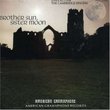
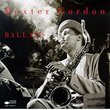

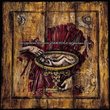



![Across The Universe [Deluxe Edition]](https://nationalbookswap.com/cd//m/51/1251/1241251.jpg)
